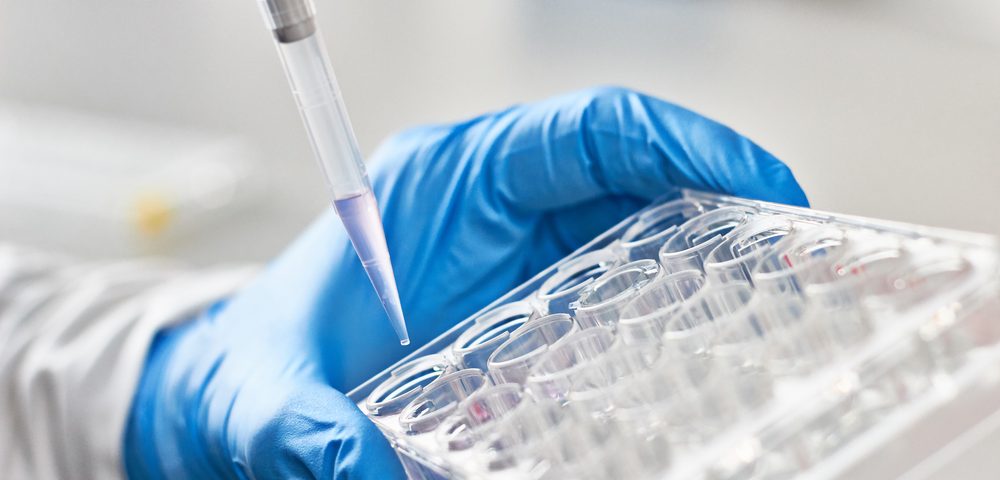Researchers in Great Britain have developed a potential new drug to target highly aggressive “triple negative” breast cancer (TNBC) — as well as a biodegradable nanoparticle to deliver it directly into cancer cells, killing them upon release.
Their study, “Nano-encapsulation of a novel anti-Ran-GTPase peptide for blockade of regulator of chromosome condensation 1 (RCC1) function in MDA-MB-231 breast cancer cells,” appeared in the International Journal of Pharmaceutics.
The drug was designed as a peptide to specifically target RAN protein. RAN is highly expressed in aggressive breast cancers, and is linked with aggressive tumor growth, cancer spread and resistance to chemotherapy in TNBC. Yet sustaining an efficient delivery of the anti-RAN peptides was still an inefficient process.
“We knew we’d need a novel delivery mechanism for this drug, because peptides on their own are unstable and they can degrade too quickly to be effective,” study author Mohamed El-Tanani of the University of Bradford’s Institute for Cancer Therapeutics explained in a press release. “Using a nanoparticle as a delivery mechanism was the perfect solution.”

Together with colleagues at Ulster University, Sunderland and Queen’s University Belfast, scientists confirmed that TNBC cells were actually absorbing the peptide-loaded nanoparticles. Afterward, these cells stopped growing and dividing. Two-thirds of the cancer cells were dead within 24 hours, which didn’t happen when cells received the peptide alone or an empty nanoparticle.
Scientists confirmed that the peptides delivered in the nanoparticles had targeted the RAN protein, blocking its action in cancer cells. El-Tanani’s team had previously shown that blocking RAN activity can also halt and even reverse resistance to chemotherapy in small-cell lung cancer.
The cells in TNBC lack receptors for two hormones — estrogen and progesterone — and the protein HER2. These are the targets of most breast cancer therapeutics, which means scientists must urgently find new therapeutic alternatives for this particular cancer type.
“By developing a nanoparticle that can help this peptide enter triple-negative breast cancer cells and block RAN, we’ve brought this potential new treatment a step closer to the clinic,” said El-Tanani. “We’re already working on in vivo tests of the nanoparticle in a triple-negative breast cancer model and are thinking ahead to taking this drug into clinical trials.”
Scientists are actively investigating other potential RAN inhibitors, including changing a drug already validated in pre-clinically breast and lung cancer studies and now ready for clinical trials. Yet the University of Bradford says developing these and other potential drugs requires further support from funding agencies and investors.

